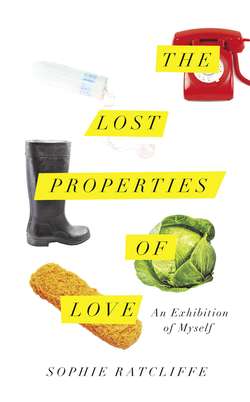Читать книгу The Lost Properties of Love - Sophie Ratcliffe, Sophie Ratcliffe - Страница 12
St Petersburg to Moscow
ОглавлениеMen can do nothing without the make-believe of a beginning.
George Eliot, Daniel Deronda
Anna turns another page of her English novel. The woman who has been out riding is now writing a letter, then putting an imaginary hat on, before walking out of the door for the imaginary station. What Anna reads is make-believe, but that’s her substance too. She is a chimera, pure fiction. Not that there’s anything pure about fiction. Anna is pieced together, as we all are, by fragments of others, imaginary and real. She is a combination. A blend. An infusion of people who Tolstoy had met, or missed. Of things that he’d read, or imagined his heroine might have read. Open her up, case by case, like a Russian matryoshka doll, and the selves reveal themselves. Lined up, an identity parade.
One of the dolls is slightly out of line. She refuses to fit. She wants to escape to another story, to break the case and start her own. Her name is Kate Field, and she was a journalist, lecturer and early telephone pioneer. Her thousands of articles – like the people she wrote for – are just a blur on the literary time-line, almost out of view. She is a real woman lost in time. A detail I cannot let go.
Kate Field wasn’t Tolstoy’s muse, not even in the loosest sense of the word. He probably didn’t even know she existed. But in the way that one late train can upset the entire South Western train service, Kate Field made an impression on Tolstoy’s world.
I know the beginning. Not the first day, first hour, first moment, but the general time and place. It began in Florence, where Kate Field first met a man with steady eyes and a way of watching the world. Anthony Trollope was forty-four and married. Field was twenty-one – and she got under Trollope’s skin. Gifts were exchanged (a copy of The Arabian Nights). And letters. And then they all went home.
But gradually, quietly, the Kate of his imagination entered his fiction. He wrote to her, and began to write about her. Numerous versions of Field haunt his novels. Different sorts of women, all a bit like Field, often called Kate, trail their way through the pages of his books. They found themselves printed and reprinted, imported and placed in bookshops in Paris and Berlin, Moscow and St Petersburg. Whenever Tolstoy readied himself to write, he turned to reading English novels. And this is how Kate Field found her way to Tolstoy. Sitting in Yasnaya, Tolstoy read about these women, these imaginary Kate Fields. He loved them. He lined the books up on his shelf. He remembered them. They crept into his mind, and into his work.
Parts of Kate Field live on in Anna Karenina. Anna Karenina is partly Kate Field. That’s what writers do. They change lives.
